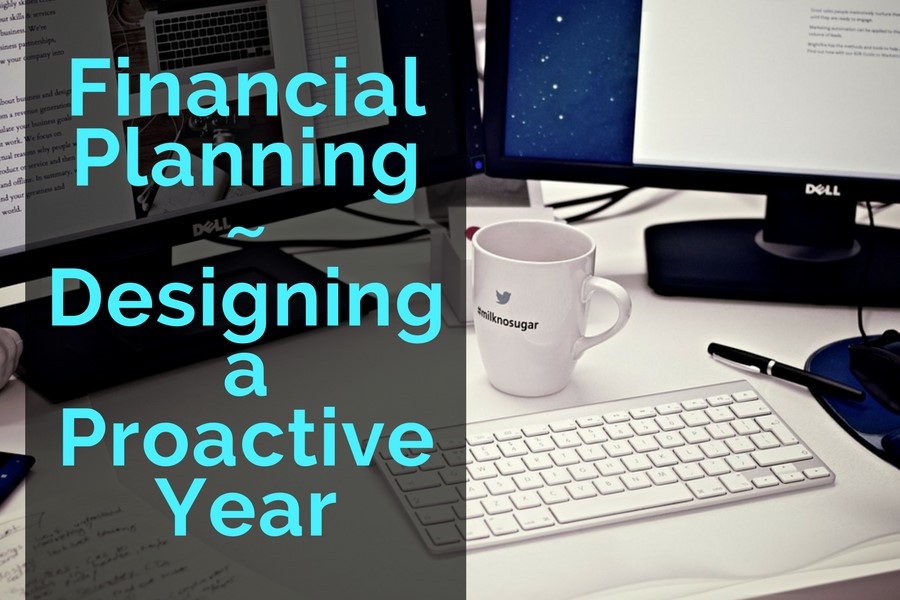It’s the start of a brand new year, and you’ve decided that this is the year that you want to get your finances in the best shape they’ve ever been in your life.
What a wise decision!
Luckily, there’s no better time to do it than now because you have a concrete, substantial period of time to dramatically change your financial situation.
Here are some tips that should help your financial planning process and allow you to start getting your financial goals organized for the next 12 months.
With the help of these strategies, you should find it easy to organize your own financial success.
Take It a Month at a Time
Write down exactly how much money you make in a year, and divide that by 12 so you know how much you make per month.
Calculate your expenses, including every monthly bill you pay, from insurance to utilities.
Once you do that, take a look at your total amount of debt, or at least a substantial part of it – if you definitely have more than you could realistically pay off in a year, try to pick one debt that you do want to totally pay off, like a specific credit card balance or a specific loan.
Let’s say you decide that you want to pay off all of your credit card balances.
Total them up to find out just how much you would need to allocate to your credit cards to pay them off within the next 12 months.
Divide that amount by 12, and factor that amount into your budget.
That is now how much you’ll pay on your credit cards every month, and barring interest and fees, you will be able to pay off your entire balance by the end of the year.
Make Some Room In Your Budget
Now, you may have set this goal of paying off your credit cards, but your budget is looking a little tight, and you don’t know how much wiggle room you have to accommodate paying off all of your credit card balances.
This is understandable if your total balances far outweigh your annual income. If that is the case you either need to find ways to increase your income, or rethink your goal of paying off all of your credit card debt this year.
But what if your current income is good and there are things you can do to curb your expenses so that you can fit these payments into your monthly budget?
Take a look at your extra expenses, like entertainment, and see if you can cut out some of those costs.
Look at how much money you spend at restaurants, and see if you can spend far less money by buying groceries and cooking at home.
Related: 101 Frugal Tips to Help You Save Money
Cut down on your cell phone usage, so that it will cost you less per month. All of those other little snacks too, like candy bars and coffee, can go, because they’re not essentials, and they’re not even nutritious or part of your meal – they’re just filler, and filler can be cut out very easily.
Don’t Waver From Your Goals
Now, as each month goes by, be sure to track your progress – you want to achieve your goals by paying off the amount on your credit cards that you want to, while still being able to afford the regular bills that you need to keep up.
Problems with this can easily be avoided in the planning stages, by making the appropriate cuts to your budget and setting realistic goals that are actually possible to reasonably pay off. This way, you don’t get into trouble and end up not eating because your food budget was made too stringently.
In the event that you simply cannot make your goal, it might be time to scale it back a bit.
Maybe you can just pay off a certain percentage of your credit card debt in the next 12 months.
Re–evaluate your income and expenditures, taking a more honest look at what you can cut back on and seeing how much of your funds that will take up, and figure out the most you can pay while still staying under budget each month.
End of the Year
By the time you’ve reached the end of the twelfth month, you’ve either completely paid off your credit cards or you’ve made substantial progress on them, for which you should be applauded.
The great part about this is that, despite feeling like you’ve spent more money, you’ve actually saved it when you consider all the interest and fees that go along with debt of any form.
So what should you do next year?
Well, for starters, if you have any other financial hurdles to overcome (paying off a mortgage or car loan, home improvement or remodeling), you can make that the following year’s goal.
Just do the same things that you did this year – divide the amount of money you need to allot for it by 12, and put that towards the debt/project each month.
If you’re able to live comfortably despite the reduced budget you’ve put yourself on, so much the better – you can start to save money for other things even after paying off everything that you need and begin experiencing true financial success.





